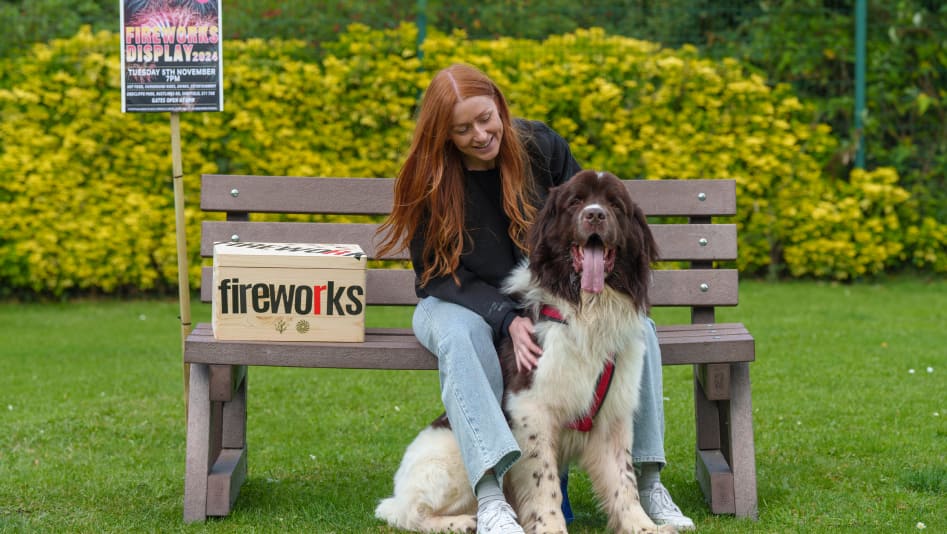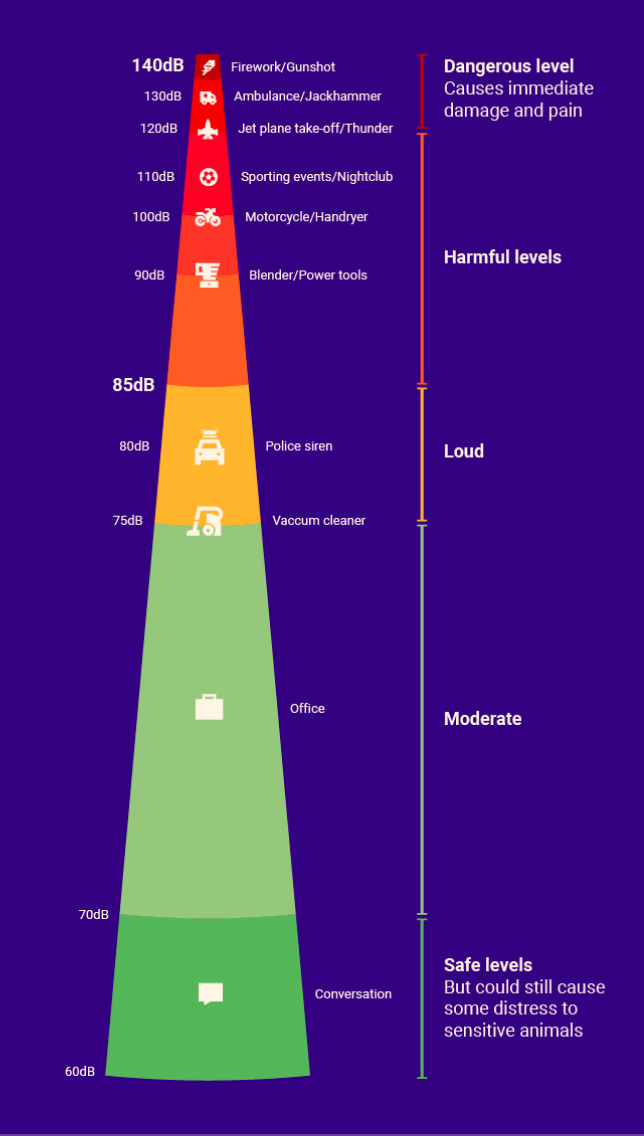How fireworks impact animals
For people, fireworks mark a time of celebration and festivities. For animals, fireworks can scare them, sometimes literally, to death. Every year, thousands of animals suffer due to the noise levels and startling flashes of fireworks, which can lead to stress, injury and death. This year, we can change that.
Help us reduce the impact on animals during firework events. Explore our RSPCA fireworks advice to quieten the noise and save lives.

Cats and dogs have a greater hearing range and higher sensitivity than humans
The effects of private displays
After the firework season of 2024, 66% of pet owners who responded to our 2024 impact reporting survey told us that backyard firework displays are a major concern.
Fear, anxiety, increased stress levels and even injury are a common result of fireworks for animals due to the noise, bright flashes and debris.
Fireworks can produce a sound between 120-175 decibels (dB). For humans, sounds over 85 dB can damage hearing, while sounds over 140 dB can cause immediate damage and pain. As dogs, cats and other animals’ ears are more sensitive than ours – they can hear sounds much further away – this level of sound can be much more damaging.
Animals such as dogs and horses can suffer from tinnitus, hearing loss and long-term hearing damage caused by fireworks, and all animals can experience stress and fear – which may lead to injury and even death. Similarly, livestock and other outdoor animals often try to escape the bangs out of fear, sometimes injuring themselves in the process.
It’s time to quieten the noise.
Decibel key
- 140 dB: Causes immediate damage and pain
- 130 dB: Ambulance/Jackhammer
- 120 dB: Jet plane takeoff/Thunder
- 110 dB: Sporting events/Nightclub
- 100 dB: Motorcycle
- 90 dB: Blender/Power tools
- 85 dB: Harmful level above this point
- 80 dB: Police siren
- 75 dB: Vacuum cleaner
- 70 dB: Office
- 60 dB: Normal conversation level

Our fireworks impact tool uses government data to provide an illustrative guide. Other factors — such as local environment, weather conditions and individual animal sensitivities — also influence the level of impact. What we can evidence is that these events cause real distress to many animals every fireworks season.
See how many animals are affected in your area with private displays
See the impact of your at home fireworks displays. Simply input your postcode or location into the box below and click ‘Search’.
Pet population data published by: Animal and Plant Health Agency, UK Gov.
Last updated: 01 November 2023.
This dataset is a modelled dataset, describing the predicted population of dogs and cats per postcode district (e.g. YO41). This dataset gives the mean estimate for population for each district, and was generated as part of the delivery of commissioned research.
How fireworks affect animals
Meet two animals severely frightened by fireworks
Staffy escapes after fireworks fright
Luna, a 7-year-old Staffy Cross, scaled a fence and escaped her owner’s garden after being startled by fireworks, and was later hit and killed by a train in her attempt to flee.
Fireworks set back horse recovery
Foxy, a horse at a therapeutic riding centre, suffered severe stress and damage to her hind leg after a private firework display caused her to repeatedly kick the walls in fear.
Fireworks and pets resources
Bibliography
Office for product safety standards. 2021. Fireworks: noise levels and impacts on health and the environment
HM Government. 2020. An introduction to how dogs hear
Animal and Plant Health Agency. 2023.
The Social Market Foundation.





